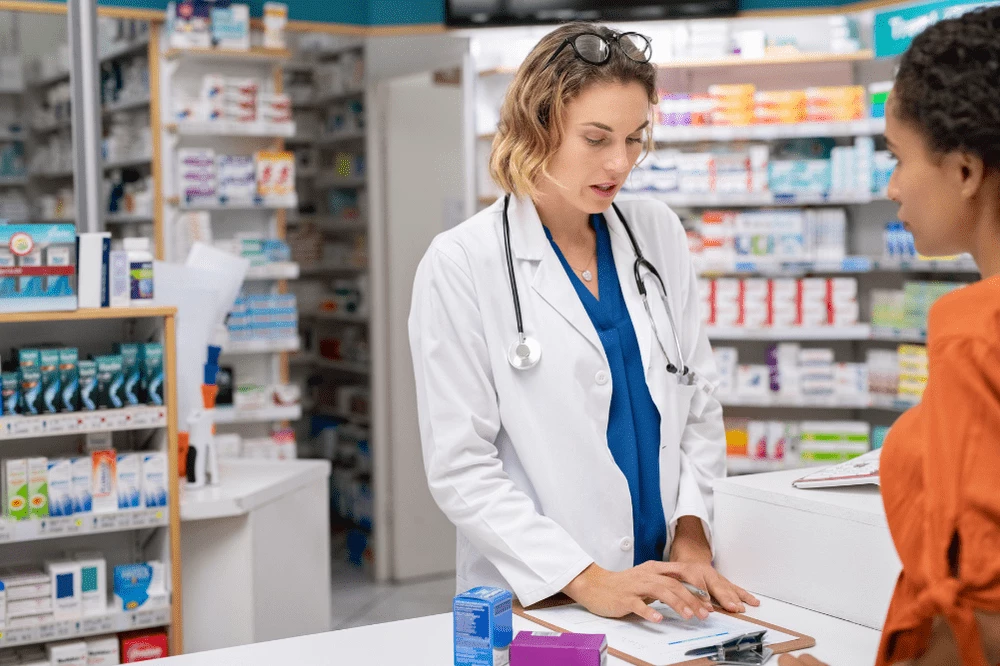
Partner Article
New Report Claims Automation of Original Pack Dispensing Could Save Pharmacies Over Four Hours Per Day
A new white paper published today has revealed that an average community pharmacy can save up to 4 hours and 27 minutes per day by automating their original pack dispensing process. This equates to more than half an employee’s time every day.
Pharmacy time is currently monopolised by the dispensing process. It accounts for 88% of an average pharmacist’s time in an average store. The process involves a range of manual logistical and time consuming tasks that are crying out for automation. In an average pharmacy the dispensing of original pack medication accounts for 70% of pharmacy time. While the last five years have seen an increase in the number of pharmacies adopting technology to automate the multi-medication dispensing process (MDS), this tech-revolution hasn’t followed for dispensing of original pack medication (OPD) which is the highest volume. Automating the OPD process can have the greatest impact on freeing up time to deliver pharmacy services.
Paul O’Hanlon, Managing Director of Centred Solutions which produced the paper, said: “Pharmacy is at crisis point with the sector facing unprecedented challenges. To survive they have no alternative but to adapt to a new service-driven model. To do that they will need to embrace technology and put new workflows in place to deal with the bulk of the dispensing workload so they have the capacity. Longer term, after the initial investment in equipment and staff training, providing patient services will drive revenue. So pharmacies need to look to the future and start considering how they innovate to enable them to move away from the dispensing desk and into the consultation room.”
The white paper outlines how 4 hours 27 minutes works out in terms of financial revenue when it is redirected into essential, advanced, enhanced or locally commissioned services for the NHS as well as private services. For example that time could equal up to £81,900 per year for NMS and as much as £114,660 per year for the discharge medicines services. It becomes even more profitable for private services with up to £201,600 per year for travel clinics and £100,800 per year for otoscopy/ear microsuction.
With a Pharmacy First scheme imminent later this year the paper says that freeing up time by automating the OPD process would allow an average pharmacy store to potentially deliver up to 17 Pharmacy First consultations per day.
“It is essential for pharmacies to look at the solutions that exist to automate the original pack dispensing process in the same way that many have already automated MDS production. Failing to explore options now will mean that pharmacies may well get left behind.” said Mr O’Hanlon
This was posted in Bdaily's Members' News section by Shelley Dyer .








 Raising the bar to boost North East growth
Raising the bar to boost North East growth
 Navigating the messy middle of business growth
Navigating the messy middle of business growth
 We must make it easier to hire young people
We must make it easier to hire young people
 Why community-based care is key to NHS' future
Why community-based care is key to NHS' future
 Culture, confidence and creativity in the North East
Culture, confidence and creativity in the North East
 Putting in the groundwork to boost skills
Putting in the groundwork to boost skills
 £100,000 milestone drives forward STEM work
£100,000 milestone drives forward STEM work
 Restoring confidence for the economic road ahead
Restoring confidence for the economic road ahead
 Ready to scale? Buy-and-build offers opportunity
Ready to scale? Buy-and-build offers opportunity
 When will our regional economy grow?
When will our regional economy grow?
 Creating a thriving North East construction sector
Creating a thriving North East construction sector
 Why investors are still backing the North East
Why investors are still backing the North East